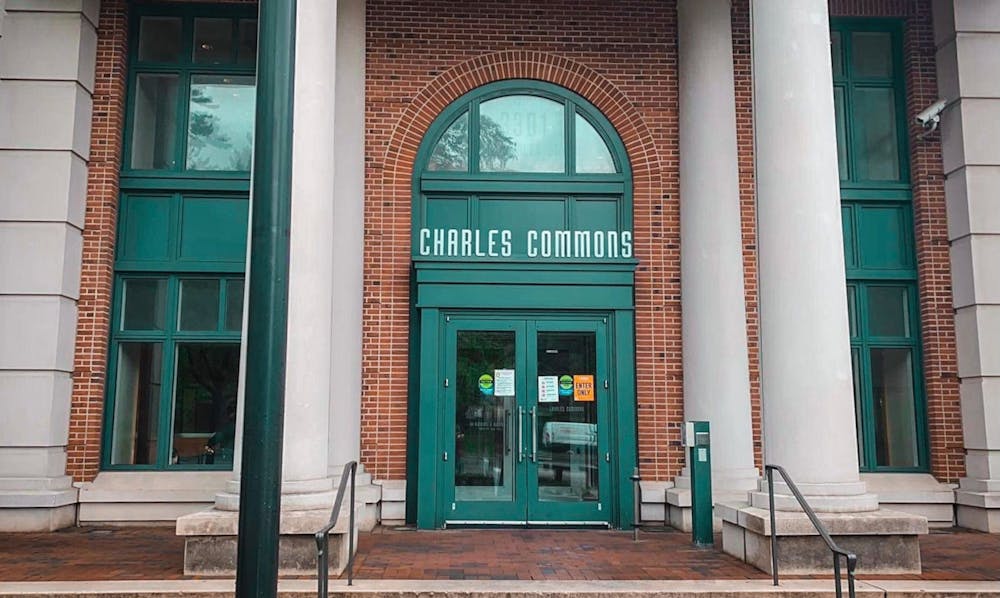University leaders announced the creation of the Diverse Names and Narratives Project in an email to the student body on April 30. The task force aims to uplift the work of underrepresented individuals by making recommendations for renaming Charles Commons, the Undergraduate Teaching Labs and the Hopkins Outpatient Center buildings. The project is part of the University’s efforts to improve diversity and inclusion on campus.
In the email, University President Ronald J. Daniels, CEO of Johns Hopkins Medicine and Dean of the Medical Faculty Paul B. Rothman and President of the Johns Hopkins Health System Kevin Sowers acknowledged that the Committee to Establish Principles on Naming (CEPN) recently released its draft report on renaming principles and explained that the University expects to move forward with the committee’s recommendations by June. However, the administration stressed that more progress is needed.
“We believe it is incumbent upon us to move forward on a parallel path with a proactive effort to recognize and elevate diverse people from our past in more tangible ways that do not require the ‘de-naming’ of an existing facility or program,” they wrote.
In an email to The News-Letter, Assistant Vice President of External Relations Karen Lancaster clarified that the Diverse Names and Narratives Project is independent of the CEPN, which will continue its efforts in parallel with the new project.
Freshman Xiomara McDonald noted that it is important to recognize the history behind the individuals that buildings are named after but expressed skepticism with the new task force.
“It seems that renaming was a way for them to say, ‘Hey, we’re being anti-racist,’” she said. “But renaming should not just be about fixing mistakes. It's about creating an appreciation of diverse forces without that cloud of renaming buildings.”
Sophomore Feven Welde, a member of the Black Student Union (BSU) and Female Leaders of Color, recognized that the University’s efforts are a step in the right direction. However, she emphasized that the University needs to be making more substantial change.
“Especially with everything that’s going on in the past year, it feels as if they are creating committee after committee without actually taking action and doing something,” Welde said.
Regarding recommendations, Welde shared that the Multicultural Leadership Council recently discussed the issues of naming and brainstormed potential individuals for consideration. Welde explained that Henrietta Lacks was one of the suggested names, highlighting the importance of paying tribute to her history.
Sophomore Jayla Scott, the community service chair of BSU, emphasized that Hopkins should be using its resources to directly help those afflicted by the University’s actions.
“Hopkins should be paying reparations to a large portion of the Baltimore community,” Scott said. “There are just so many families in East Baltimore that have had to deal with so much harm because of the [Hopkins] Hospital’s development. Instead of wasting time creating this task force, [the University] should be adjusting the systemic problems that lead to poverty.”
Additionally, Scott suggested other applications for the University’s time and resources, including investing in education, infrastructure and crime reduction programs.
The task force will be led by Susan Daimler, a member of the board of trustees, and Dr. Robert Higgins, senior associate dean of diversity and inclusion. Staff and faculty across the different campuses will work with the University’s librarians and archivists to make recommendations. Among the members, junior Rahwa Yehdego is the only student representative on the task force.
Welde commended Yehdego, who is the current vice president of the BSU, but asserted that there should be more student input in the process.
“It’s unfair to put the experiences of all Black students at Hopkins on Rahwa,“ Welde said. “You cannot completely capture what these students have experienced unless they are present themselves.”
The task force is set to meet for the first time next month. To get involved, Hopkins affiliates can complete the provided online feedback form or email feedback to diversenamesandnarratives@jhu.edu.
Min-Seo Kim and Ishan Kalburge contributed reporting to this article.





